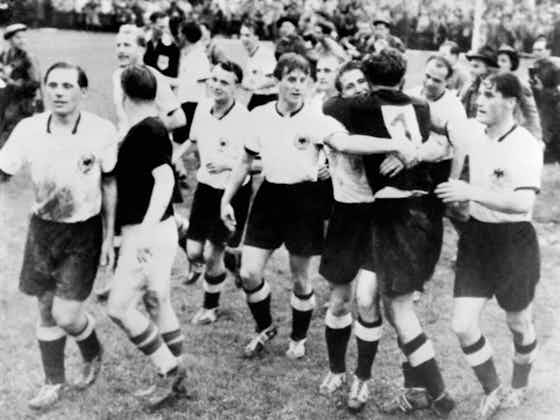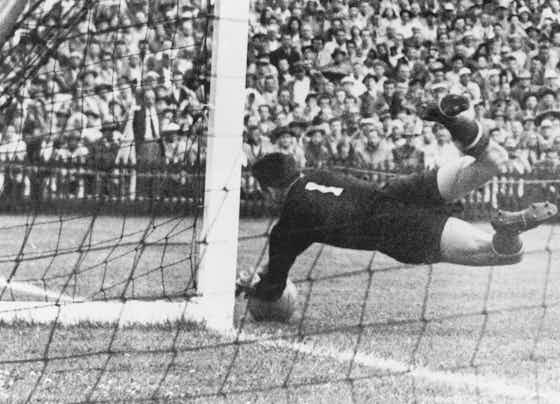OneFootball
Joel Sanderson-Murray·4 November 2022
🌎 Iconic World Cup Moments: Six goals, three red cards, one deadly battle

In partnership with
Yahoo sportsOneFootball
Joel Sanderson-Murray·4 November 2022

In the build-up to this year’s World Cup, we will be bringing you an iconic moment from each of the previous tournaments. You can see all of the articles so far right here.
As for today, we’re hitting you a meeting from 1954 that was so bloody it even has its own name.
Long before the likes of Germany, France and Spain dominated proceedings, Hungary were considered one of the superpowers of world football.
Boasting the legendary Ferenc Puskás in attack, the Hungarians went into the 1954 tournament in the midst of a 32-game unbeaten run that included them become Olympic champions in 1952.
They would become one of the stories of the 1954 World Cup in Switzerland, for good and for bad, as they embarked on a journey which took them all the way to the final before suffering defeat to West Germany.
Despite the competition breaking the record for most goals in a single game (Switzerland 5-7 Austria), and most goals scored by one team (Hungary — 27) , it was a quarter-final match that became what the fifth edition of the World Cup would be remembered for.
The Hungarians locked horns with Brazil on 27 June at the Wankdorf Stadium in Bern on a rain-soaked, slippery pitch. In conditions usually perfect for football, something akin to a wrestling event broke out instead.

Hungary led after just three minutes through Nándor Hidegkuti and Sándor Kocsis doubled that advantage four minutes later.
Djalma Santos’ penalty gave Brazil some hope before half-time but chaos unfolded after Hungary were awarded a penalty themselves in the second half.
Mihály Lantos dispatched to make it 3-1 but the decision to give the spot-kick by English referee Arthur Ellis prompted a pitch invasion by Brazilian officials, who had to be escorted off by police.
That was only the beginning. The game descended into a contest to see who could kick each other the hardest.
Julinho pulled another back for Brazil before his team-mate Nilton Santos fouled József Bozsik, resulting in the two men fighting each other and Ellis dishing out a red card to both players.
Kocsis rounded off the win for Hungary in the closing stages but the result had become a support act to the main event by then, as both teams focused on leaving one in on the other.
Humberto Tozzi’s particularly over-zealous kick on Gyula Lóránt saw Brazil reduced to nine men before the final whistle. It was a mess, with 42 fouls and a further four yellow cards recorded over the 90 minutes.
The antics continued after full-time, with Brazilian players reportedly invading the opposition dressing room and Hungary boss Gustav Sebes needing four stitches on a facial wound picked up in the melee.
“This was a battle; a brutal, savage match,” Sebes said post-match. He wasn’t kidding.
Referee Ellis recalled thegame years later in an interview with FIFA.com, “I thought it was going to be the greatest game I’d ever see. I was on top of the world.
“Whether politics and religion had something to do with it I don’t know, but they behaved like animals. It was a disgrace.
“It was a horrible match. In today’s climate so many players would have been sent off the game would have been abandoned. My only thought was that I was determined to finish it.”
The real beautiful game.






























































